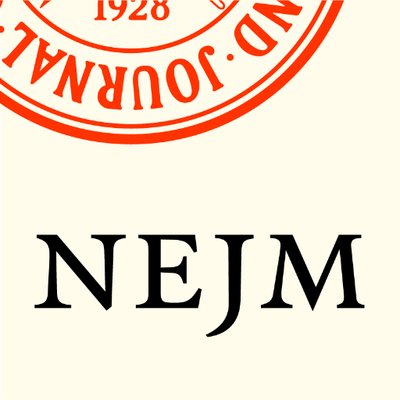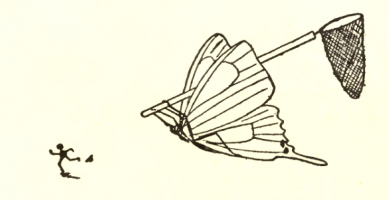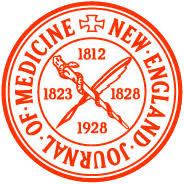
Until yesterday, the New England Journal of Medicine had retracted only 24 papers. Now that tally is 25.
As our Ivan Oransky reports at Medscape:
Continue reading NEJM paper retracted for “inaccuracies in the analytic database and data analyses”
Until yesterday, the New England Journal of Medicine had retracted only 24 papers. Now that tally is 25.
As our Ivan Oransky reports at Medscape:
Continue reading NEJM paper retracted for “inaccuracies in the analytic database and data analyses”
The Images in Clinical Medicine section of the New England Journal of Medicine (NEJM) is prime real estate for physicians and others wanting to share a compelling picture with their colleagues. But earlier this month, an eye specialist in Michigan saw double when he looked at the Dec. 5, 2019, installment of the feature.
Depicted was a picture from a pair of eye specialists in India who claimed to have seen a case of a person who’d suffered retinal bleeding after having been struck in the eye by a tennis ball:
Continue reading How a plagiarized eye image in the NEJM was discovered The New England Journal of Medicine has retracted a 2013 paper that provided some proof that the Mediterranean diet can directly prevent heart attacks, stroke, and other cardiovascular problems.
The New England Journal of Medicine has retracted a 2013 paper that provided some proof that the Mediterranean diet can directly prevent heart attacks, stroke, and other cardiovascular problems.
The original paper, “Primary Prevention of Cardiovascular Disease with a Mediterranean Diet,” has been cited 1,759 times, according to Clarivate Analytics’ Web of Science.
But the findings haven’t disappeared — the authors have replaced the paper with a new version, which softens its earlier claims. Continue reading Does the Mediterranean diet prevent heart attacks? NEJM retracts (and replaces) high-profile paper
 Title: Tranexamic Acid in Patients Undergoing Coronary-Artery Surgery
Title: Tranexamic Acid in Patients Undergoing Coronary-Artery Surgery
What Caught Our Attention: When the New England Journal of Medicine (NEJM) publishes a correction that is more than a misspelling of a name, we take a look. When NEJM publishes a 500-word correction to the data in a highly cited article, we take notice. This study tested the effects of a drug to prevent blood loss in patients undergoing heart surgery; it’s been the subject of correspondence between the authors and outside experts. The correction involved tweaks — lots of tweaks — to the text and tables, which did not change the outcomes. Continue reading Caught Our Notice: Big journal, big correction
 A 2016 study in New England Journal of Medicine has received a substantial correction, which affected several aspects of the article.
A 2016 study in New England Journal of Medicine has received a substantial correction, which affected several aspects of the article.
Typically, an error that affects so much of a paper would undermine the results (and possibly lead to a retraction). But in this case, the revised dose calculations actually strengthened the findings, according to the first author.
The NEJM study aimed to clarify whether patients with a neuromuscular disease called myasthenia gravis benefit from a surgical procedure to remove the thymus. About half of the patients received surgery plus the steroid prednisone, while the rest only received the steroid. The researchers found patients who received the surgery fared better.
Shortly after the paper was published in August 2016, the authors discovered an error in the calculation of the average prednisone dose. According to Gil Wolfe, the first author of the paper, when the researchers corrected the error: Continue reading Big corrections usually weaken findings. But a recent NEJM one strengthened them, author says
 This week, the New England Journal of Medicine issued a type of editor’s note we’ve never seen before, on a highly influential letter published nearly 40 years ago.
This week, the New England Journal of Medicine issued a type of editor’s note we’ve never seen before, on a highly influential letter published nearly 40 years ago.
Above the one-paragraph letter, which reports data suggesting pain medications are not likely to cause addiction, the journal has added a note warning readers that the letter has been “heavily and uncritically cited” by sources using it to suggest opioids are not addictive.
In essence, the journal isn’t commenting on the merits of the letter — the problem is how it’s been used by others.
The same issue of the journal includes a letter by researchers based in Canada who analyzed how the 1980 letter had been cited, noting:
Continue reading NEJM issues unusual warning for readers about 1980 letter on opioid addiction
When authors get new data that revise a previous report, what should they do?
In the case of a 2015 lung cancer drug study in the New England Journal of Medicine (NEJM), the journal published a letter to the editor with the updated findings.
Shortly after the paper was published, a pharmaceutical company released new data showing the drug wasn’t quite as effective as it had seemed. Once the authors included the new data in their analysis, they adjusted their original response rate of 59% — hailed as one of a few “encouraging results” in an NEJM editorial at the time of publication — to 45%, as they write in the letter. One of the authors told us they published the 2015 paper using less “mature” data because the drug’s benefits appeared so promising, raising questions about when to publish “exciting but still evolving data.”
It’s not a correction, as the original paper has not been changed; it doesn’t even contain a flag that it’s been updated. But among the online letters about the paper is one from the authors, “Update to Rociletinib Data with the RECIST Confirmed Response Rate,” which provides the new data and backstory:
Continue reading How should journals update papers when new findings come out?
 After publishing a paper about neuropathy in diabetic patients last week, The New England Journal of Medicine (NEJM) immediately corrected it after editors learned of errors and some missing disclosures within the article.
After publishing a paper about neuropathy in diabetic patients last week, The New England Journal of Medicine (NEJM) immediately corrected it after editors learned of errors and some missing disclosures within the article.
The notice explains that the sole author of the paper, “Diabetic Sensory and Motor Neuropathy,” reported incorrect doses for several medications, and received royalties for the tool to measure quality of life used in the paper. The author told us all the declarations were “discussed in detail” between him and the journal, and both parties agreed to the final decision.
Let’s take a look at the lengthy correction notice — what some of our readers might call a “mega-correction:” Continue reading NEJM quickly corrects disclosure statement, errors in diabetes paper
The New England Journal of Medicine added a disclaimer to a recent article about the effects of funding cuts to Planned Parenthood, after a request from the Texas Health and Human Services Commission, saying it wanted to distance itself from the paper.
Since the paper was published in February, one author has stepped down from his position at HHSC after facing disciplinary action.
The article suggested that birth rates among a group of lower-income women increased after the state cut down on support for Planned Parenthood. It drew a significant amount of media attention — and concern from the HHSC, which asked the journal to add a disclaimer to the article soon after publication. The journal complied, but embargoed the announcement of the change until 5 p.m. eastern time today.
Here’s the disclaimer that NEJM added to the article:
 The New England Journal of Medicine (NEJM) has no plans to change the wording of an article that led to allegations of breached patient confidentiality and caused a minor social media firestorm this past weekend, the journal told Retraction Watch.
The New England Journal of Medicine (NEJM) has no plans to change the wording of an article that led to allegations of breached patient confidentiality and caused a minor social media firestorm this past weekend, the journal told Retraction Watch.
The paragraph in question appeared in an essay by Lisa Rosenbaum chronicling the history of power morcellation, a technique to remove gynecological organs that the FDA has subjected to a “black box warning” because it can also spread tumors: Continue reading NEJM: No plan to clarify wording that led to allegations of breached confidentiality